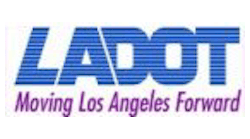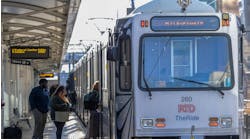Proterra announced that the Los Angeles Department of Transportation will receive 25 35-foot Proterra Catalyst electric buses in 2019, in response to a significant commitment by the city of Los Angeles to deploy an all-electric bus fleet by 2030. The procurement will be funded in part by Federal Transit Administration Low or No Emission Vehicle Deployment Grants (Low-No).
“Our goal is a 100 percent electric bus fleet — it’s a quiet ride for our customers and cleaner air for our city,” said Seleta Reynolds, LADOT’s general manager. “We know we can’t achieve our vision without partners like Proterra, and we can’t wait to see these buses on the street!”
LADOT Transit provided 21,536,305 passenger trips in 2016 within Los Angeles, across 468 square miles. The agency has committed to electrifying all 359 fleet vehicles by 2030. Proterra battery-electric buses will replace CNG buses that emit more than 7.8 million pounds of GHG (greenhouse gas) emissions annually. In addition to the environmental and health benefits, the new buses will deliver anticipated cost savings of $11.2 million to LADOT Transit over a 12-year lifetime since they require less energy to operate and have reduced maintenance costs.
This commitment from LADOT contributes to a larger precedent in Southern California set by neighboring transportation agencies, including Foothill Transit, The Los Angeles County Metropolitan Transportation Authority (LA Metro) and Antelope Valley Transit Authority to go fully electric over the next 15 years. In 2016, Foothill Transit, a 361-bus fleet servicing passengers within the San Gabriel Valley, including express bus routes to Pasadena and Downtown Los Angeles, made a commitment to fully electrify its fleet by 2030. AVTA also made a commitment to convert its 85-bus fleet to battery-electric buses by 2018. This year, LA Metro, a 2,200 bus fleet, followed with a similar commitment to convert all its vehicles to battery-electric buses by 2030. This transition in Southern California will result in one of the heaviest concentrations of electric buses in North America.
The Low-No initiative is a direct result of Fixing America’s Surface Transportation (FAST) Act passed by Congress in 2015. Low-No funds support the development of transit buses and infrastructure that use advanced technologies. $27.5 million in grants were awarded to 29 public transit winners in 24 states to purchase or lease Proterra Catalyst electric vehicles, battery systems and charging infrastructure.
“Los Angeles County is home to our manufacturing facility in the city of Industry, where we manufacture the Catalyst electric buses, so it is fitting that our buses will be deployed in nearby regions,” said Ryan Popple, CEO of Proterra. “We’re proud to support transit agencies in meeting their climate action goals through the procurement of battery-electric buses. We applaud these agencies for their efforts to create an experience that supports healthy communities.”




